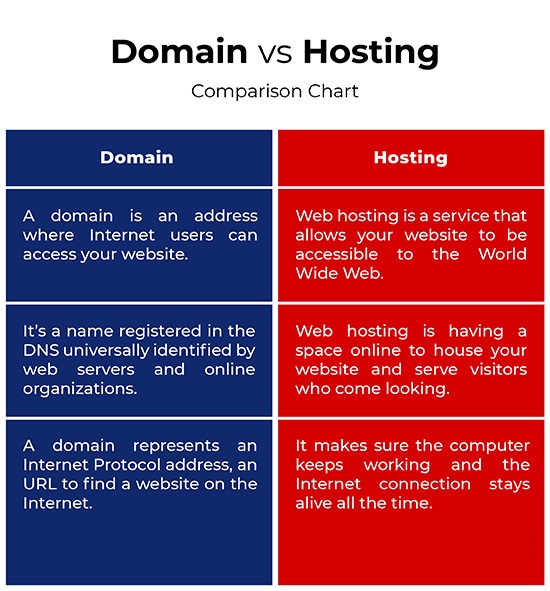Understanding the Difference between Domain and Web Hosting
When starting a website, it is important to understand the difference between domain and web hosting. While they both play a crucial role in getting your website online, they serve different purposes. Let’s delve into what each of them means and how they contribute to your online presence.
What is a Domain?
A domain is the unique address of your website on the internet. It is what users type in their browser’s address bar to access your site. For example, www.yourwebsite.com is a domain name. Think of it as the street address of your house – it tells people where to find you on the web. A domain can be purchased from a domain registrar, such as GoDaddy or Namecheap, and needs to be renewed annually to keep it active.
What is Web Hosting?
Web hosting, on the other hand, is the service that stores your website’s files and data on a server. When someone types in your domain name, the web host retrieves the files and displays them on the user’s screen. It is like renting space on the internet to store your website. Web hosting providers offer different types of hosting plans, such as shared hosting, VPS hosting, and dedicated hosting, depending on your website’s needs.
The Relationship between Domain and Web Hosting
Now that we understand what domain and web hosting are, let’s talk about how they work together. Your domain name is like the address of your house, while web hosting is the actual house itself. Without a domain, no one can find your website, and without web hosting, there would be no website to find.
When you purchase a domain, you need to link it to your web hosting provider’s server. This connection allows users to access your website by typing in the domain name. Most web hosting companies offer domain registration services as well, making it convenient to manage both your domain and hosting in one place.
Choosing the Right Domain and Web Hosting
When selecting a domain name, it is essential to choose one that is easy to remember and relevant to your website’s content. Avoid using hyphens or numbers, as they can confuse users. Additionally, make sure your domain name reflects your brand and is not too similar to existing websites.
For web hosting, consider factors like uptime reliability, storage space, bandwidth, and customer support. It is crucial to choose a reliable web host to ensure your website is accessible to users at all times. Look for hosting providers with positive reviews and excellent customer service to avoid any issues down the line.
Conclusion
In conclusion, understanding the difference between domain and web hosting is essential for anyone looking to create a website. While a domain is like your website’s address, web hosting is where your website’s files are stored. By choosing the right domain and web hosting provider, you can ensure your website runs smoothly and is easily accessible to users. Remember to renew your domain annually and keep an eye on your hosting plan to avoid any disruptions to your online presence.
